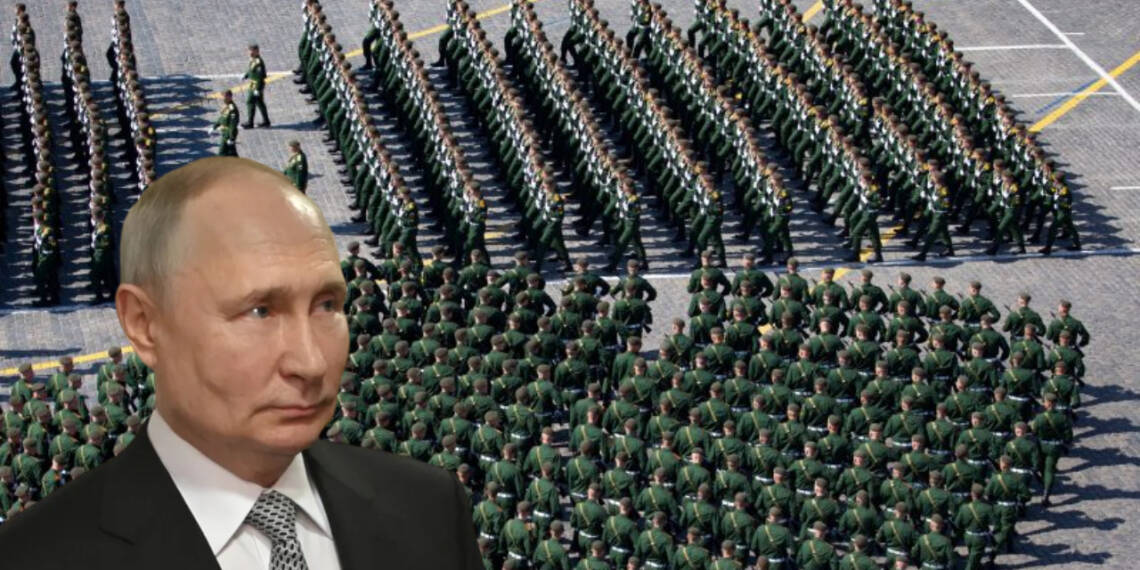On September 30th, 2023, Russia celebrated its victory in the annexed regions of Ukraine, namely Donetsk, Kherson, Luhansk, and Zaporizhzhia oblasts. This marked the one-year anniversary of Russia’s official acquisition of these territories.
The annexation followed a referendum held by Russian President Vladimir Putin, where residents of these regions overwhelmingly voted in favor of joining Russia. Subsequently, the following year, Putin made the strategic decision to escalate tensions in Eastern Ukraine, indicating further intensifying Russia’s involvement in the region.
On 29 September, Russia’s Defense Ministry declared a significant development in its military operations. For the first time, the four occupied regions of Ukraine will be incorporated into Russia’s upcoming autumn conscription, starting from October 1.
This move expands the conscription process across all parts of the Russian Federation, encompassing the illegally annexed Ukrainian territories.
Notably, the inclusion of eastern Ukraine in this conscription subtly communicates Russia’s strategic message, indicating a nuanced but potent shift in its approach within the region.
First Message: East vs. West is Real
Firstly, it signifies an emotion in Eastern Ukraine’s stance, indicating a willingness to confront Ukraine directly. Putin’s decision to include these regions in the conscription is a deliberate assertion to the global community.
If a large number of Eastern Ukrainians join the conscription, it will communicate that Russia’s annexation of these territories wasn’t merely a capricious act but a mission aimed at safeguarding ethnic Russians from Ukrainian forces. Even the Eastern Ukrainians want to part ways with Kyiv.

This is no hidden fact that Eastern Ukraine’s complex demographics play a substantial role in this conflict. The region boasts a substantial Russian-speaking population, with historical ties to Russia dating back centuries. While the area’s ethnic lines have blurred due to historical migrations and Soviet-era industrialization, the fall of the Soviet Union accentuated the growing division between Russia and Ukraine.
This schism escalated into a full-blown conflict in 2014, triggered by Russia’s annexation of Crimea and the declaration of independence by separatists in Eastern Ukraine. The ensuing conflict resulted in immense human suffering, displacement, and loss of life, exacerbating the rift between communities.
Notably, the conflict’s toll is staggering; more than 13,000 Russians lost their lives between 2014 and 2022 due to this divide, often at the hands of Ukrainian forces. Western powers have been scrutinizing these numbers, highlighting the gravity of the situation.
Read More: Zelensky admits that he can’t take back Russia occupied Ukraine
Second Message: East Ukraine Supports Russia
Secondly, Putin also wants to use this conscription as a method to show constant support for Russia in Eastern Ukraine.
In Eastern Ukraine, especially in cities like Donetsk and Luhansk, pro-Russian sentiment has been evident, marked by rallies and demonstrations following Ukraine’s 2014 political unrest and Russia’s annexation of Crimea.
These protests, driven by cultural affinity and dissatisfaction with Ukrainian changes, expressed support for closer ties with Russia. Although such demonstrations waned after the conflict, a persistent undercurrent of pro-Russian sentiment remains.

President Putin aims to employ conscription as a means to showcase continuous regional backing for Russia, ensuring that the sentiment persists even amidst reduced Western attention.
Putin’s strategic rationale behind the conscription lies in the belief that by involving more Russians in the fight against Ukraine, Russia can further assert its influence and agenda in the region. This move underscores the deeply entrenched geopolitical complexities at play in this ongoing conflict.
Read More: Ukraine’s ‘All-Inclusive’ conscription is pretty saddening
This strategic conscription is bound to convey a strong global message: Russia’s annexation of Eastern Ukraine is not coercive but is wholeheartedly supported by the region’s populace. The only remaining question is how many individuals will participate in this endeavor.
Watch More:







